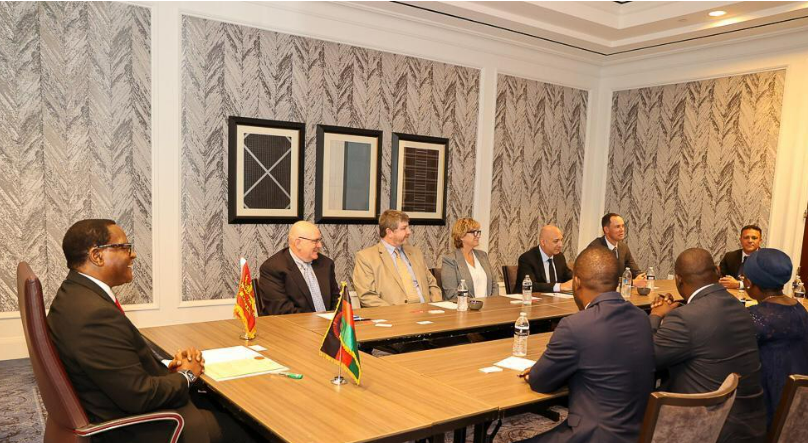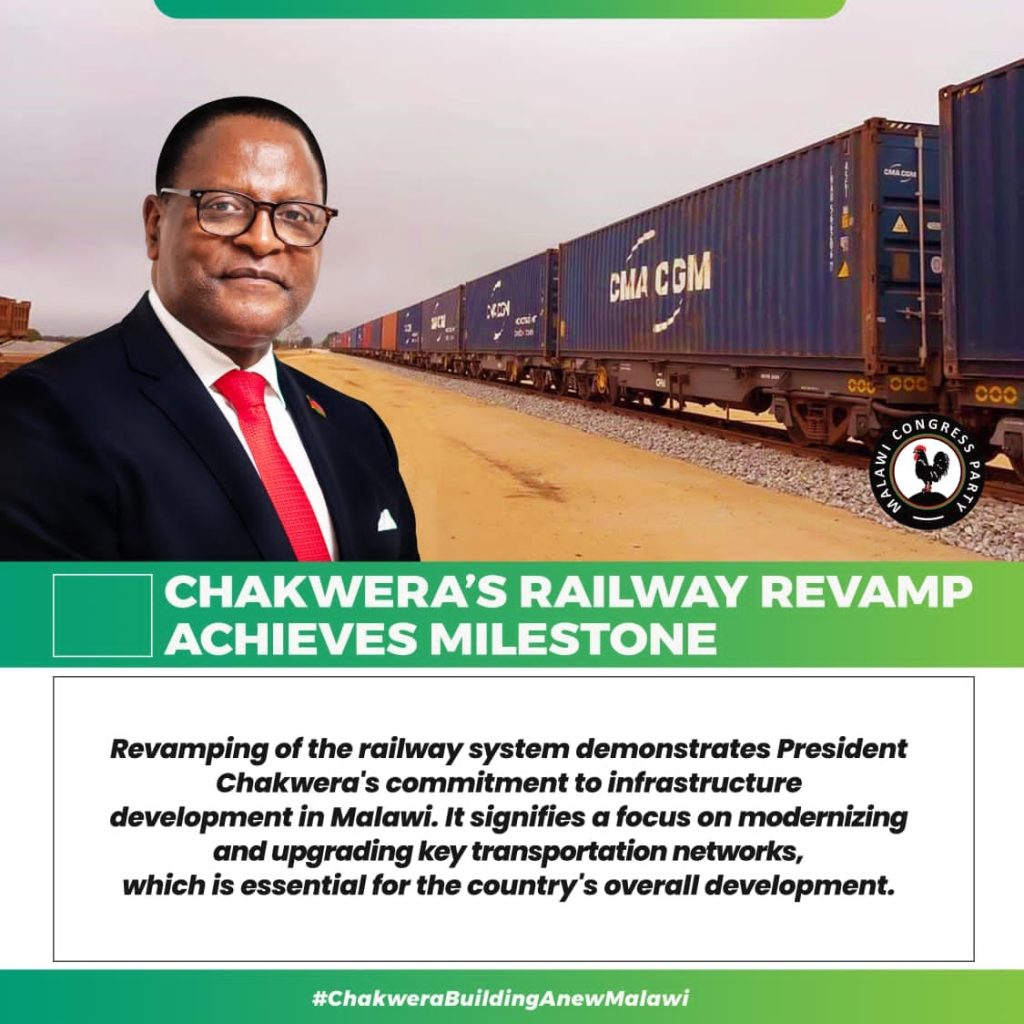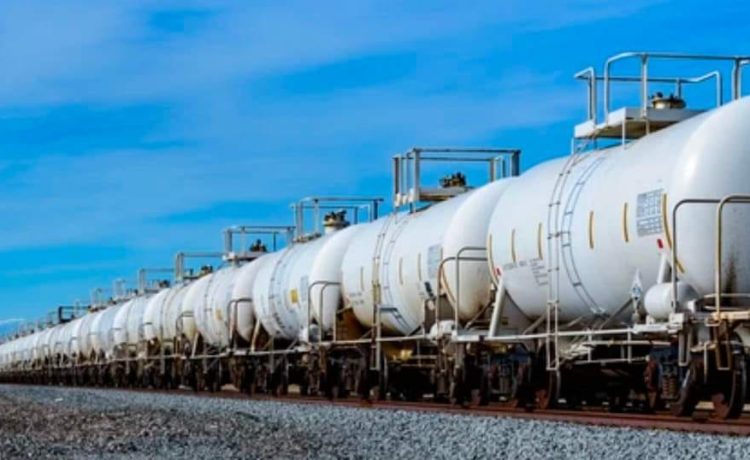President Lazarus Chakwera’s administration has spearheaded a remarkable revival of Malawi’s railway transport system, marking a significant milestone in the country’s development journey. The announcement, by Minister of Transport and Public Works, of the arrival of the first fuel train to Kanengo in Lilongwe is a testament to the government’s unwavering commitment to revitalizing the nation’s transportation infrastructure.
The rehabilitation of the rail network, a top priority for President Chakwera since taking office in 2020, has opened new avenues for the efficient and cost-effective movement of both wet (fuel) and dry cargo. The reopening of the Nkaya to Lilongwe route, facilitated by the Central East Africa Railways (CEAR), has paved the way for trains to regularly transport fuel from Nacala Port to the Kanengo Nocma Fuel Depot, with first haulage expected to arrive Lilongwe tomorrow, according to Minister of Transport and Public Works, Jacob Hara.
During the week, 800,000 litres of fuel arrived by rail at fuel reserves stationed at Matindi in Blantyre from Nacala Port in Mozambique.
Click here to view the arrival of fuel tanks through rail in Blantyre
The strides in the railway sector are dividends of President Chakwera’s dedicated efforts and commitment to revive the rail sector. Recognizing the transformative potential of a robust railway system, President Chakwera has actively courted investors in the sector. During the recent U.S.-Africa Summit in Dallas, Texas, Chakwera met with the executive management of the All American Rail Group (AARG), a consortium focused on advancing rail, infrastructure, and agriculture projects in the United States and Africa, striking a deal of their investment in the railway infrastructure in Malawi, eying expansion of the railway network to other parts of the country and modernization of the system.

Chakwera has since shared that his vision for Malawi’s transportation sector is to create a seamless, cost-effective, and efficient system that drives economic development, reduces transportation costs, and enhances the quality of life for all Malawians. Consequently, his administration’s Transport Master Plan has mapped out corridors to extend and rehabilitate the rail network, facilitating the flow of commodities, including agricultural products, to urban, regional, and export markets.

The revival of rail transportation has generated a buzz of excitement among Malawians, who are now optimistic about the country’s significant strides in the right direction of meaningful development. The potential economic impacts of the fuel haulage by rail are substantial, including an estimated 40% reduction in transportation costs, lessened pressure on the road infrastructure, increased security and stability of fuel supply, and the creation of numerous job opportunities in the rail sector and allied industries.
Chakwera’s unwavering commitment to revamping Malawi’s railway network has set the stage for a transformative era in the nation’s transportation landscape. Shire Times senior political commentator, Joseph Masina, has argued that “this ambitious project is poised to unlock Malawi’s economic potential, drive industrialization, and pave the way for long-term sustainable growth, firmly positioning the country on the path to prosperity”.













